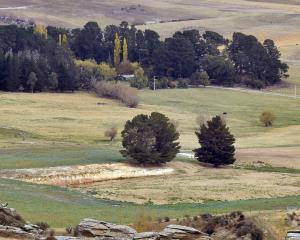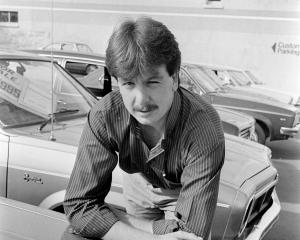
The official opening of the New Zealand Cricket Museum took place recently in the old pavilion stand at the Basin Reserve in Wellington.
This coincided with the commencement of the second cricket test between New Zealand and England.
Notably, it welcomed the Inductees to the NZC Hall of Fame "First Eleven", comprising a highly talented group of cricketers spanning a playing period of around eight decades.
This is an important recognition of these exceptional cricketers who have become genuine heroes and role models for the game. Their induction to the NZC Hall of Fame enshrines and confirms their cricketing immortality.
Three of these played with distinction for Otago before going on to represent New Zealand, the first being Bert Sutcliffe (1923-2001).
Although born and raised in Auckland, Sutcliffe moved to Dunedin in the late 1940s and remained here for the majority of his cricketing career.
He was an elegant and skilful left-handed batsman, playing during an amateur era and prior to the inception of ODI and T20 matches.
His was a stellar record in both provincial and test cricket. He exceeded 17,000 runs in first class cricket at a batting average of 47.41, with a top score of 385. In the test arena he scored 2777 runs at an average of 40.10 with a top score of 230 not out.
His courage was exceptional. In a Boxing Day test in Johannesburg in 1953 he was struck on the head by South African fast bowler Neil Adcock and required hospital treatment; batsmen had no helmet protection in those days.
With his head swathed in bandages he returned later that day to continue his innings.
Joining him was the team's number 11 batsman Bob Blair despite the fact that his fiancee had been killed in the Tangiwai train disaster two days previously.
A damaged Sutcliffe and grieving Blair played on valiantly, but the test was lost.
The story of their heroism though has endured down the years and is testament to an unbelievable display of bravery and sacrifice for the team.
Sutcliffe played his last test match in 1965. His ashes were buried at his beloved Carisbrook.
Unfortunately they could not be located for removal when, sadly, the curtain was finally lowered after 100 memorable years on the spiritual home of Otago rugby and cricket.
Perhaps it is appropriate though, that his legacy still lives on there.
The second of our greats is Glenn Turner, born in 1947, who was very much a son of Dunedin and Otago.
His prodigious batting talent shone at Otago Boys' High School and resulted in his selection at age 17 in the Plunket Shield team.
An extremely good batting technique ensured a sound foundation for the future.
From initially being a relatively slow scorer, his game flourished with increased maturity and he was also quick to embrace ODI cricket from its advent in 1971.
He enjoyed a long and successful county career with Worcester in England (1967-1982).
In many respects Turner was a pathfinder for New Zealand cricketers seeking a professional career.
In 1973 he achieved the rare feat of scoring 1000 first class runs in England before the end of May.
In 1982 he recorded his 100th first-class century.
In 1974 he became the first New Zealander to score a test century in both innings to assist New Zealand beat Australia for the first time.
He was also the first player to score over 150 runs in an ODI match.
Glen Turner has many other cricketing firsts to his name. An author too of a number of books on cricket, ably aided in some instances by brother Brian.
The third and final of our local greats is the mercurial Brendon "Baz" McCullum, born in 1981.
From his early life in Dunedin his has been an extraordinary story that appears to have some distance yet to run.
Although lacking the finer technical batting skills of Glenn Turner, his combative style and flair for the unpredictable won many admirers.
In some ways he was ideally suited to the ODI and T20 format. He was a sound wicketkeeper and proved to be a highly respected and capable captain of the Black Caps.
Outstanding concentration and determination over a 12-hour period carried him to a test score of 302 runs against India in 2014 at the Basin Reserve, showing he could curb his natural attacking tendencies.
The twilight of his career saw McCallum excel in the IPL competition as both player and coach.
Three years ago he took over as coach of the English test cricket team which has since achieved considerable success in adopting his proactive approach in attack and defence.
They regularly average 4 to 5 runs per over in tests. The term "Bazball" was coined in England two years ago in recognition of the playing style fostered by McCallum, with the Black Caps having been on the receiving end of this in the current test series.
These are the local stories of three of the inductees to the New Zealand Cricket Hall of Fame "First Eleven".
The remaining eight are located in various parts of New Zealand and will be equally revered.
They too have entered the pantheon of the greats.
Their stories will also inspire young cricketers and act as a beacon for the future.
Joss Miller is a retired Dunedin lawyer and cricket devotee.











